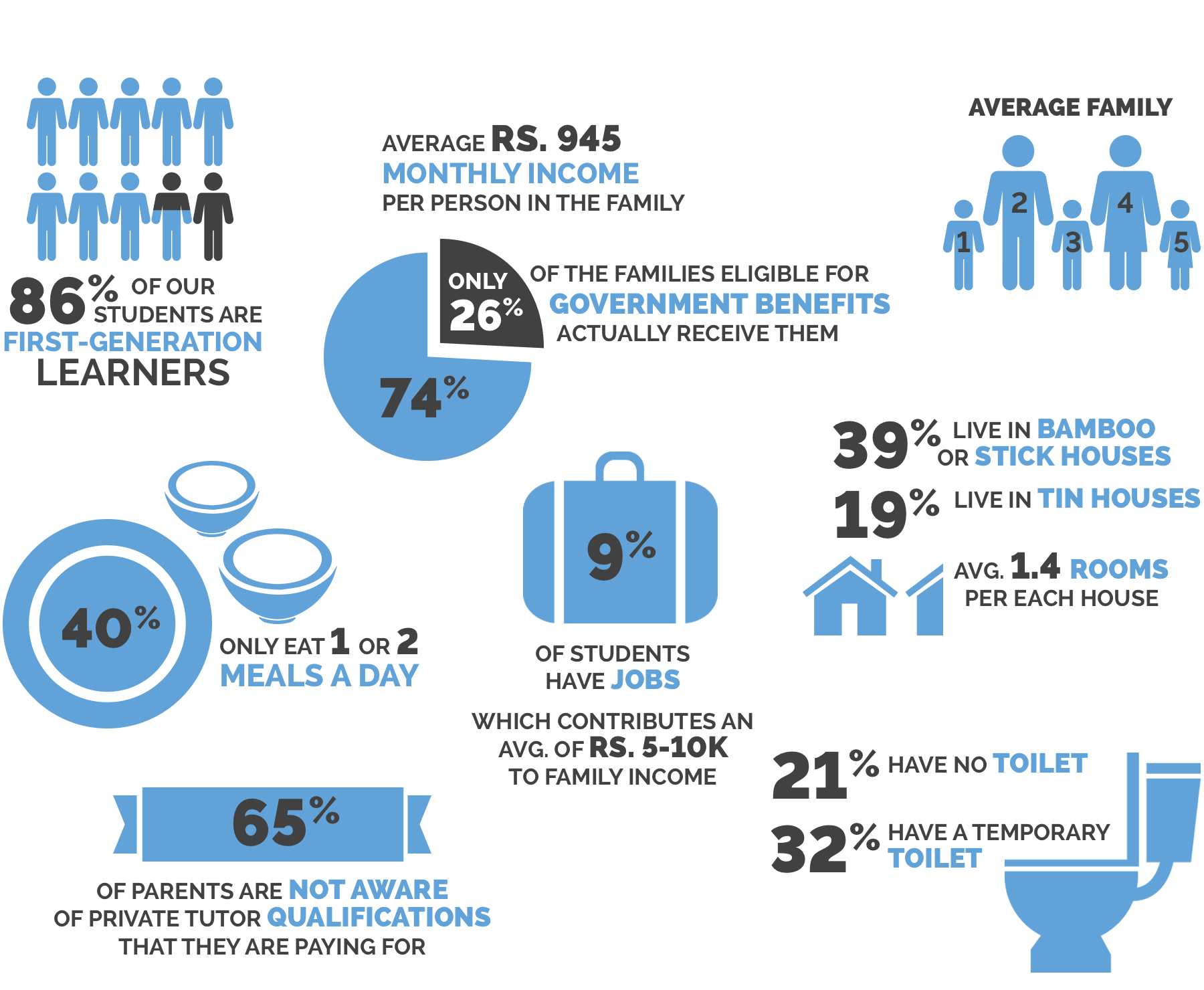Y2L Need
In India, there are 47 million teenagers out of school
YEARN TO LEARN
Although access to education has improved overall in West Bengal, systemic problems remain, which have a detrimental effect on the ability of children to pursue an education. Some children face not just one, but a number of these obstacles in the way of pursuing even the most basic level of education. RISE works with children most at risk of dropping out of school, in a challenging rural area where there are few other organisations providing the same services.
What is it like for a family of 5 with an income of £600 per year?
Sujon Sarkar is a 14-year-old boy living in Krishnagar, West Bengal. His ambition is to be a business man and he loves to play cricket. He has been attending our RISE programme since 2012 with 97% attendance. When we met Sujon, he had lost interest in school, having no motivation for learning as he saw supporting his family as more pressing. He lives in a small bamboo structure with no toilet and no running water. Every monsoon season, Sujon’s home is damaged by the floods and their family have to build a new structure. Sujon and his fellow students often don't break out of the cycle of poverty. Their hopes and aspirations are often squashed by the necessity of survival.
They work the fields, some marry at 11 or 12 and education is no longer an option.
At RISE we believe education is power to change and grow. So we fight for their right for education every day while providing the support needed to the family to make this happen.
- 46% 46% of 10-year-olds are at least 3 years behind their expected reading level
- 19% It is estimated that 19% of 10-year-olds are not literate in their own mother tongue of Bengali
- 25% Over 25% of students who do enroll in primary school drop-out by the age of 10
- 85:1 The student-teacher ratio in classrooms can be as disproportionate as 85:1 in rural areas, which is more than the national average of 33:1
- 25% 25% of teachers are absent from their school posts in rural India
WHO IS RISE SUPPORTING IN RURAL WEST BENGAL?
